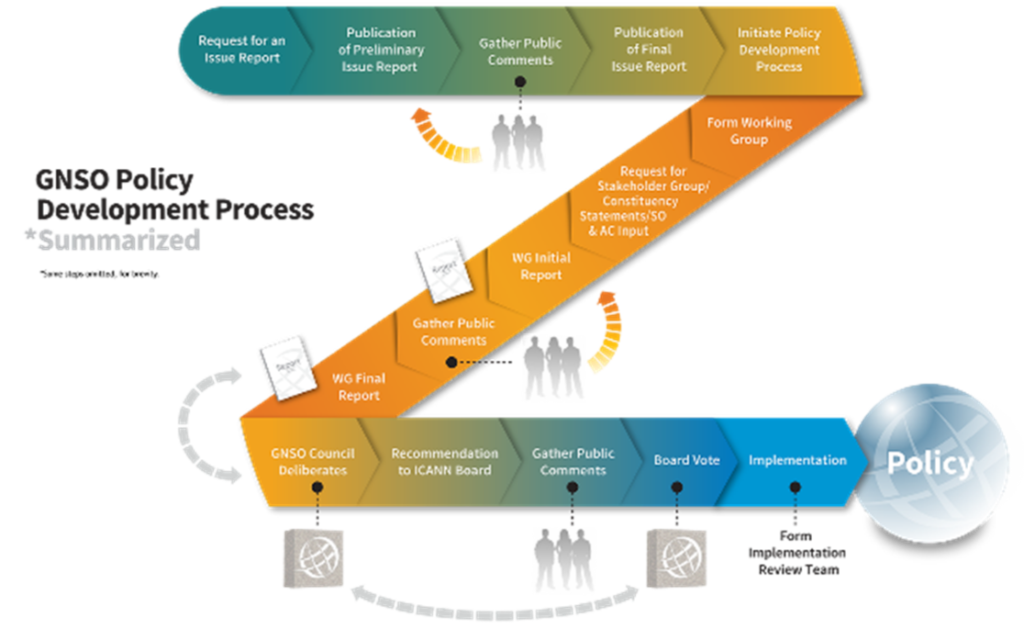The trademark association, MARQUES calls the attention of the ICANN to the first revision of UDRP proceedings, 20 years after their creations.
[29/04/2019]
The European trademark association, MARQUES, grouping various players in trademark protection has just addressed a letter to the ICANN concerning the change of UDRP proceedings to expose the point of view of right holders.
Conflicts between trademarks and domain names can be complex due to the “territorial” nature of the Internet, which makes it difficult to determine the applicable law and the competent judge, and the uncertainty of a potentially time-consuming and costly legal action.
To overcome this legal complexity, the ICANN, assisted by WIPO, introduced in 1999 a specific arbitration procedure for any holder of a domain name with a generic extension (gTLD/newGLTD) : the Uniform Dispute Resolution Policy (UDRP).
Nearly 20 years after their creations, these proceedings have not been significantly updated although the use of the Internet has considerably evolved and so has cybersquatting.
The review of UDRP proceedings analysed by the ICANN.
In order to remedy this situation, an ICANN Working Group was mandated to conduct an audit as part of the Policy Development Process:

This revision work is carried out in two phases:
- The first phase is dedicated to new protection mechanisms created as part of the new gTLD programme (NewgTLD) :
- URS (Uniform Rapid Suspension Dispute Resolution Procedure)
- TMCH (Trademark Clearinghouse)
- PDDRPs ( Post-Delegation Dispute Resolution Procedures)
- The second phase was dedicated to UDRP proceedings
In this regard, several issues were previously identified:
- Protection of non-commercial uses and freedom of expression of registrants
- Alternative character of the bad faith criterion
- Costs of the proceeding borne by the losing party
- Initiation of damages
- Reduction of proceeding costs
- Presumption of bad faith for repeat offenders
- Processing of trademark infringements carried out on the associated site and not in the domain name
- Decision in favour of the complainant
- Protection of generic terms
The financial impact of cybersquatting for right holders is assessed at $ 360 million
It is in this context that the trademark association, MARQUES, has called on the ICANN to present several recommendations from right holders and their representatives.
The first finding concerns the financial impact of cybersquatting for right holders. As of 31 December 2018 and since their creations, more than 72,000 UDRP proceedings have been initiated for nearly 110,000 domain names.

Source: www.dndisputes.com

Altogether, only admission fees for UDRP proceedings before WIPO account for nearly $ 64 million of proceedings. In addition to this, there are costs for preparing and monitoring cases by consulting firms, defensive surveillance and registration fees which amount to nearly 360 million dollars of costs related to cybersquatting.
Even though, 85% of the decisions are issued in favour of trademark holders, the MARQUES association is surprised that no fees are charged to malicious filers.
Source: www.dndisputes.com
Recommendation of the trademark association MARQUES to ICANN
For the sake of neutrality, the MARQUES Association has reported nine complaints of domain name holders and trademark holders to the ICANN as part of this revision:
- Complaint of domain name holders
- Minimum panel of 3 experts
- Possible appeals before the UDRP Arbitration Center
- Immunity for domain names registered for more than 3 years
- Assessing the principle of specialty of the trademark with regard to the use of the domain
- Taking into account the territorial character of the trademark with regard to the domain name
- Response time extended to 6 weeks
- Training of UDRP experts by the ICANN
- Enhanced penalty for misuse of UDRP proceedings (Reverse Domain Name Hi-Jacking)
- Complaint of trademark holders
- The criterion of bad faith must be assessed alternatively and not cumulatively (this criterion is currently cumulative, bad faith must therefore be proven retroactively at the time of filing)
- Appointment of experts by arbitration centers
- If an appeal proceeding is recognized, it should be requested within 28 days and it requires advance payment.
- If an applicant loses in 3 cases, his bad faith should be presumed
- When an applicant loses the proceeding, he/she should reveal his/her entire domain name portfolio and undertakes not to register new domain names in the future.
- A defendant cannot claim ignorance of the mark given the possibilities of online trademark search
- In the absence of a response from the holder, the decision should be rendered in favour of the applicant according to an express proceeding.
- The ICANN shall financially participate in UDRP litigations
- The holder of the domain name should pay a deposit of $ 500, which is refunded in the event of failure of the action against the same.
These recommendations will surely be heard by the ICANN. In fact, UDRP proceedings have become the cornerstones of disputes between domain names and trademarks, but their costs continue to hinder their adoptions.
In addition, the high fees of arbitration centers have raised the prices of the second domain name market in the case of cybersquatters. The reduction of costs for applicants would allow to limit this prejudicial speculation for trademark owners.
Today, there are effective strategies for recovering several domain names under the UDRP proceeding (Consolidation) or via an action towards technical providers (takedown). Do not hesitate to contact our firm for any questions relative to these issues.
